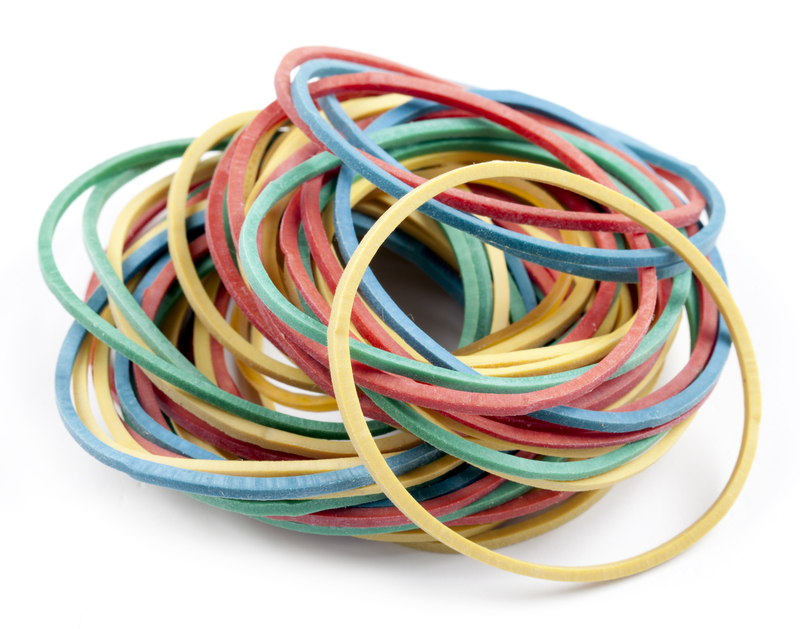Budget-Friendly Tips for Large Household Waste Items
Dealing with large household waste items can quickly become a stressful and expensive hurdle for many homeowners. Whether you're renovating, moving house, or simply conducting a major cleanout, bulky waste such as old furniture, appliances, and mattresses can present unique disposal challenges. Fortunately, there are several cost-effective strategies for disposing of large household items safely and responsibly. This comprehensive guide explores budget-friendly tips, sustainable approaches, and local options for handling oversized waste--keeping your expenses to a minimum while reducing your environmental footprint.

Understanding Bulky Household Waste Management
Before diving into the best ways to dispose of large household waste economically, it's important to understand what qualifies as bulky waste. Large household waste items (also known as bulk trash or oversized junk) typically include:
- Sofas and Couches
- Mattresses and Box Springs
- Refrigerators, Stoves, and Other Appliances
- Tables, Chairs, and Desks
- TVs and Large Electronics
- Exercise Equipment
- Rugs and Carpets
- Cabinets and Wardrobes
Most municipal waste collection services do not accept these items in regular curbside pickups, requiring special arrangements or additional fees. That's why exploring budget-conscious options for managing large waste items is crucial.
1. Leverage City or Local Council Bulk Pickup Services
Most cities and towns offer periodic or contract-based large item pickup services. These municipal waste management solutions often allow residents to dispose of a specific number of large items per year for free or for a minor fee.
- Check Local Schedules: Visit your city's official website to find the dates and rules for bulk pickup events.
- Follow Guidelines: Most bulk collection services have restrictions on item types, sizing, and hazardous materials. Ensure your items fit within those guidelines.
- Prepare Items Properly: Remove doors from refrigerators, tie loose parts, or bag mattresses as required by your municipality.
Tip: Plan your home cleanouts around scheduled municipal bulk waste days to take full advantage of these free or subsidized services--an extremely budget-friendly solution for getting rid of bulky items.
2. Donate Usable Large Items
One person's trash can be another person's treasure. If your large household items are still in good, working condition, consider donation as a sustainable and low-cost way to declutter.
- Charities and Thrift Stores: Organizations such as Goodwill, Habitat for Humanity ReStores, or local shelters often accept furniture, appliances, and electronics.
- Pick-Up Services: Many charities offer free pick-up of large items, saving you money and effort.
- Tax Benefits: Donations are usually tax-deductible. Keep receipts for a potential tax break at year-end.
Donating large items not only keeps costs low but also benefits your community and reduces landfill waste.
3. Sell or Give Away Large Items Online
If your bulky waste still has some value, selling or giving them away online is a savvy, cost-efficient approach:
-
Online Marketplaces:
- List large items on platforms like Facebook Marketplace, Craigslist, OfferUp, or Nextdoor.
- Include clear photos and honest descriptions to attract buyers.
-
Freecycling and "Curb Alerts":
- Post items for free pickup on Freecycle.org or place them with a "Free" sign at the curb (if allowed in your neighborhood).
Bonus: Selling can help offset other moving or cleanup expenses, making it a truly budget-friendly way to deal with large household waste items.
4. Rent a Small Dumpster or Bagster
For larger-scale projects--such as renovations or significant downsizing--a dumpster or dumpster bag service can be a practical, cost-effective solution:
-
Dumpster Rental:
- Choose the smallest possible size to save money.
- Share rental fees with neighbors to maximize cost savings.
- Shop around and compare local rates for the best deal.
-
Bagster Services (Dumpster Bags):
- Purchase a large, heavy-duty bag from a hardware store.
- Fill it with non-hazardous waste, then schedule an affordable, one-time pickup.
Tip: These options are often less expensive than repeated large-item pickup charges, especially when disposing of numerous bulky pieces.
Bagster vs. Dumpster: Which is More Economical?
Bagsters work best for moderate loads or smaller remodeling projects, while dumpsters offer more volume for large clear-outs. Always compare pricing and local policies, as hauling fees can vary widely.
5. DIY Hauling to Local Landfills and Transfer Stations
If you have access to a pickup truck or can borrow one, self-hauling can be the most budget-friendly way to dispose of large household waste. Here's how:
- Research your nearest landfill or transfer station for operating hours and fees.
- Some localities allow residents to drop off bulky items for free or at reduced rates.
- Call ahead to confirm what types of waste are accepted and any requirements for large items or electronics.
- Properly secure and transport items--use straps, blankets, and tarps for safe hauling.
This option requires more effort, but you can save money and time by avoiding professional hauling fees and waiting for municipal schedules.
6. Organize a Community Clean-Up or Junk Removal Day
Collaborate with neighbors to plan a neighborhood junk day. Pooling resources or hiring a junk removal service as a group can dramatically lower costs for everyone. Steps to success:
- Coordinate a date convenient for most households.
- Contact local junk removal companies for group discounts.
- Split transportation or dumpster rental expenses among multiple families.
Pro Tip: Some companies or municipalities offer special event rates or will provide extra dumpsters at no charge for registered neighborhood clean-ups.
7. Upcycle or Repurpose Large Household Items
Before throwing away that old table or armchair, consider creative ways to upcycle and reuse bulky items. This turns would-be waste into functional or decorative pieces--saving you disposal fees and giving new life to old materials. Ideas include:
- Turn dresser drawers into planters or storage bins.
- Convert broken chairs into garden trellises.
- Use wood from old furniture for DIY projects.
- Strip appliances for scrap metal or parts if you have technical skills.
Not everyone enjoys crafting, but upcycling can be a fun and sustainable way to cut down on waste disposal expenses.
8. Beware of Illegal Dumping
Never dispose of large household waste by leaving it in unauthorized public spaces, vacant lots, or on private property. Illegal dumping is subject to heavy fines, poses an environmental hazard, and reduces neighborhood quality of life. Always choose legal and ethical disposal solutions for your bulky household trash.
Additional Budget-Friendly Strategies for Bulky Trash Removal
- Look for Bulk Waste Amnesty Days: Many municipalities offer annual events where residents can dispose of substantial amounts of large rubbish at no cost.
- Ask About Rebate or Voucher Programs: Some areas have incentives for disposing of mattresses, electronics, or certain appliances responsibly--potentially saving you money.
- Use Appliance Retailer Take-Back Programs: When purchasing replacement appliances, stores sometimes offer free removal or recycling of your old unit.
- Reduce at the Source: Consider modular furniture or products designed with easy recycling or resale in mind; this minimizes future bulky waste disposal challenges.
Environmental Considerations for Disposing of Large Household Waste Economically
While minimizing costs is important, it's equally vital to think green. Many large items--especially electronics and appliances--contain materials that should not go into landfills. Always:
- Remove hazardous materials, like refrigerants from appliances or batteries from electronics.
- Use recycling centers specializing in e-waste and white goods.
- Seek out scrap metal buyers for metal-heavy items, which may even pay you for certain materials.
Environmentally friendly disposal keeps toxins out of nature and may connect you with free or low-cost recycling options.
Frequently Asked Questions: Budget Disposal of Large Household Waste Items
What's the cheapest way to dispose of an old sofa?
If your municipal collection service offers a bulk pickup, this is usually free or low-cost. Otherwise, try donation, coordinated group hauling, or placing it for free online pickup.
Can I recycle mattresses or old appliances?
Yes--many areas have dedicated recycling programs for mattresses and appliances. Check local facilities and inquire about drop-off fees or rebates.
Are there any free options for large item disposal?
Check for free citywide pickup days, donation programs, or haul your items to facilities that accept certain waste for free. Ask about available community events or amnesty programs.

Summary: The Smartest Ways to Save Money On Bulky Waste Removal
- Plan ahead--schedule cleanouts with free municipal pickups.
- Donate, sell, or give away usable items before considering disposal.
- Share hauling or dumpster costs with neighbors if possible.
- Choose DIY drop-off for control of fees and convenience.
- Upcycle or recycle to reduce both costs and waste.
With these budget-friendly tips for large household waste items, you can declutter your home, manage your waste responsibly, and save money at every step. By planning ahead and exploring all available options, you'll ensure your bulky trash is handled affordably--and with minimal impact on the environment.
Conclusion
Disposing of large household waste doesn't have to drain your wallet or harm the planet. By utilizing city bulk pickup services, donating usable items, selling online, sharing resources, and considering upcycling or recycling, you can tackle almost any bulky waste challenge economically. Always stay informed about your local rules and explore all available disposal avenues to save both money and hassle.
Transforming your bulky trash removal process into an organized, eco-conscious, and low-cost effort starts with these simple, budget-friendly tips for large household waste items.
